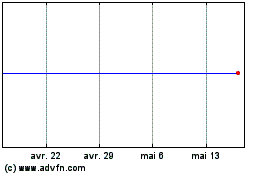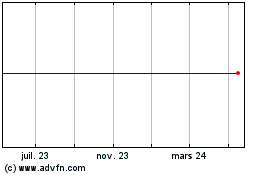By Barak Richman and Francis Fukuyama
Twitter's decision to kick Donald Trump off its platform was
welcomed by many liberals as a necessary response to a president
who had incited the January 6 storming of Congress. But many of
those not particularly friendly to Mr. Trump were nonetheless
troubled that Twitter had grown so powerful that it could silence a
U.S. president. The Russian anticorruption activist Alexei Navalny,
in a series of tweets a few days before his recent arrest,
expressed similar worries about Twitter using its power against
champions of democracy.
The prevailing approach to protecting political speech on the
major digital platforms has been to pressure the companies to
self-regulate by creating, for instance, oversight boards of
outside experts. But leaving these momentous decisions in the hands
of private companies is not a long-term solution; they have neither
the legitimacy nor the capacity to make such decisions in the
public interest.
The core issue is the oversize power of Twitter, Facebook and
Google in controlling political discourse. One measure with some
congressional support is to repeal or change Section 230 of the
Communications Decency Act, which limits the liability of platforms
for the content they carry. But reform could hurt small companies
more than the established giants, who can more easily develop
algorithms and hire personnel to filter out problematic
content.
The question is how to reduce the power of today's digital
monopolists without losing the substantial social value they offer.
We believe that a structural solution is possible: requiring the
dominant platforms to allow users to select their own output from
the algorithms. This would depend on the creation of a new kind of
"middleware." The term normally refers to software that connects
operating systems with applications, but we envision software that
puts a filtering layer between big platforms and their users. It
would give consumers a simple, powerful tool to manage the content
that reaches them.
The problem with today's digital monopolists is not that they
carry fake news or conspiracy theories; this content is
unfortunately widespread, and the First Amendment protects
Americans' right to express what they want. The real harm comes
from those few companies' ability to amplify certain voices while
excluding others. This power is a product of scale economies, in
which one large platform generates more attention, participation
and value than multiple smaller ones, and a business model that
relies on capturing user attention for advertisers. These platforms
squeeze out alternative platforms while fueling virality, thereby
advancing the loudest, most provocative voices.
Their ability to amplify or silence speech has reached a scale
large enough to potentially sway elections and shape policy
outcomes. It constitutes a form of concentrated political power
similar to leaving a loaded gun on the table. We may believe that
the person sitting opposite us today will not pick up the gun and
shoot us with it, but trusting the good intentions of individual
actors is not a sustainable approach for any democracy.
The power of the digital platforms extends far beyond their
public decisions to suspend certain accounts. The voices people
hear on these platforms are the product of hidden algorithms that
the platforms can tweak at any time without public notice. Twitter
algorithms determine which tweets users see, Facebook algorithms
disseminate certain news feeds, and Google algorithms sequence
news, advertisements and other search results. These algorithms are
utterly nontransparent; they invisibly take away from users much of
their ability to control what appears in their feeds.
Some have argued that banning Mr. Trump from Twitter violates
the First Amendment and amounts to censorship. This is wrong in a
technical sense, since the First Amendment constrains only
government action; it actually protects the right of the platforms
to carry what they want. Nonetheless, there is some truth to the
censorship charge. These platforms are so central to political
speech that they have become, in effect, the new American public
square, comparable to the three dominant television networks in the
1950s and '60s.
Others have suggested using the antitrust laws to curtail the
power of the major platforms. But these laws were designed to
correct economic harms and cure monopolistic abuses. The major
platforms may be guilty of such abuses, which is why Facebook and
Google are being taken to court by the Federal Trade Commission,
Justice Department and many state attorneys general, to say nothing
of their legal problems in the European Union. (Twitter has not
faced the same scrutiny.)
But none of the remedies currently being sought would address
the potential political harms of the platforms' control over
political speech, except perhaps a full AT&T-style breakup.
That outcome is not only politically and legally unlikely, but it
would take years and likely prove ineffective because other
dominant digital companies would rise to take the place of today's
giants.
The great advantage of the "middleware" solution that we propose
is that it does not rely on an unlikely revolution in today's
digital landscape and could be done relatively quickly. How would
it work? A spate of third-party companies would create and operate
software to curate and order the content that users see on their
digital platforms, according to the users' preferences. Users could
insert their preferred middleware as plug-ins to the platforms and
thus choose their own trusted intermediary to sort their news, rank
their searches and order their feed of tweets.
Were Donald Trump allowed back onto Twitter, middleware would
allow users to choose how much to hear from him -- potentially
dampening his virality through their choices and, most
significantly, reducing the impact of any decision made by Twitter
executives. Surveys suggest that many users would prefer a calmer,
less divisive internet; this plan would put that to the test.
Middleware would outsource content curation from the major
platforms to a new, competitive layer of smaller companies. Once
platforms open themselves to middleware, little technical expertise
is required to craft a new algorithm, and even nonprofit entities
or local civic organizations could sponsor their own. Middleware
need not alter the platforms' general appearance or workings.
Instead, by filtering the platforms' algorithms according to
consumers' choices, it would give users greater control over the
information they see. The internet would return in some respects to
being the decentralized place it was designed to be, rather than a
sphere dominated by a few large companies.
This solution would require the cooperation of the major
platforms and new powers for federal regulators, but it is less
intrusive than many of the other remedies currently receiving
bipartisan support. In an earnings call this week, Twitter CEO Jack
Dorsey endorsed "giving more people choice around what relevance
algorithms they're using. You can imagine a more market-driven and
marketplace approach to algorithms." Regulators would have to
ensure that the platforms allow middleware to function smoothly and
may need to establish revenue-sharing models to make the
middle-layer firms viable. But such a shift would allow the
platforms to maintain their scope and preserve their business
models. Moreover, middleware would allow Twitter, Facebook, and
Google to continue delivering their core services to users while
shedding the duty of policing political speech.
Could middleware further fragment the internet and reinforce the
filter bubbles that have fed the polarization of American politics?
Perhaps, but the aim of public policy should not be to stamp out
political extremism and conspiracy theories. Rather, it should
reduce the outsize power of the large platforms and return to users
the power to determine what they see and hear on them.
Middleware offers a structural fix and avoids collateral damage.
It will not solve the problems of polarization and disinformation,
but it will remove an essential megaphone that has fueled their
spread. And it will enhance individual autonomy, leveling the
playing field in what should be a democratic marketplace of
ideas.
--Dr. Richman is a professor of law and business at Duke
University. Dr. Fukuyama is a senior fellow at Stanford
University's Freeman Spogli Institute.
(END) Dow Jones Newswires
February 12, 2021 17:24 ET (22:24 GMT)
Copyright (c) 2021 Dow Jones & Company, Inc.
Twitter (NYSE:TWTR)
Graphique Historique de l'Action
De Juin 2024 à Juil 2024

Twitter (NYSE:TWTR)
Graphique Historique de l'Action
De Juil 2023 à Juil 2024
